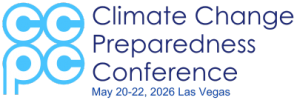
Brent is the Chairman and CEO of the Los Angeles Emergency Preparedness Foundation and the Community Brigade pilot program. He has led crisis management teams in response to over 70 events in 49 countries, working with heads of state, elected officials, and military commanders in helping countries address the loss of life, operational challenges, and collaborative efforts needed to stabilize and manage catastrophic events. As a negotiator and advisor, Brent has been called upon to work with multiple government agencies, including the US Department of State, the Department of Defense, FEMA, UN agencies, and foreign governments.
FEMA appointed Brent to the development committee, which authored the U.S. National Response Plan for disasters. As Chairman of the Multi-Hazard Mitigation Council, Brent led a congressional study on the benefits of government investment in pre-disaster mitigation and testified on the results to Congress. Brent and his team operated the Business Operations Center inside the City of Los Angeles Emergency Operations Center for 10 years. In 2018, following the Woolsey Fire, Brent, in collaboration with the University of Long Beach, UC Berkeley, and local community leaders, launched an initiative to integrate the capabilities and resources of local communities with the leadership and expertise of the Los Angeles County Fire Department. This resulted in a groundbreaking partnership, supported by the Los Angeles County Board of Supervisors and the Los Angeles County Fire Department, to implement the Community Brigade Pilot program, which operates across high-risk wildfire-exposed communities.
Brent has received multiple national and international awards. He is an author, academic research partner, and regular featured speaker at media events, universities, businesses, and government meetings.

